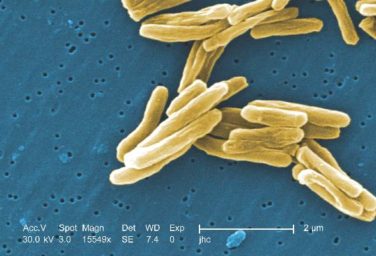AT THE PAS ANNUAL MEETING
SAN DIEGO (FRONTLINE MEDICAL NEWS) – Infants given high-dose acyclovir for the treatment of herpes simplex virus (HSV) infections experienced a number of adverse reactions, including seizure, hypotension, and thrombocytopenia, according to the results of a new study, but it is unclear if the root cause of these events is the drug or the infection itself.
“The dose currently approved by the [Food and Drug Administration] for use in this population for this indication is 10 mg/kg per dose, dosed ever 8 hours, [but] there have been studies that have indicated that a dose of 20 mg/kg per dose every 8 hours is more effective,” said Dr. Jessica E. Ericson, a third-year fellow in a department of pediatrics at Duke University, Durham, N.C., who presented the findings of this retrospective cohort study at the annual meeting of the Pediatric Academic Societies.
Dr. Ericson added that the 20 mg/kg per dose has “been recommended by the American Academy of Pediatrics Committee on Infectious Diseases and is generally considered to be the standard of care for this condition,” but stated that the “discrepancy between the current standard of care and the FDA-approved dose is likely due to a perceived lack of safety data that demonstrate that high-dose acyclovir is safe to use in young infants.”
Levels of elevated creatine, neutropenia, leukopenia, and thrombocytopenia were measured to assess laboratory AEs, with benchmarks set by the investigators for what defined an adverse event (AE) and a serious AE for each outcome measure. For elevated creatine, greater than 1.7 mg/dL was considered an AE and greater than 3.0 mg/dL was considered a serious AE; for neutropenia, an AE was less than 5,000/mm3 and a serious AE was less than 100/mm3; for leukopenia, less than 5,000/mm3 was an AE and less than 2,000/mm3 was a serious AE; and for thrombocytopenia, less than 100,000/mm3 was considered an AE and less than 20,000/mm3 was considered serious.
Clinical AEs were found in 31% of the 359 infants who received a 20 mg/kg per dose every 8 hours, the most common of which were hypotension (16%) and seizure (11%).
Laboratory AEs were less prevalent: 5% had a creatine AE, and 1% had a serious creatine AE; 3% had a neutropenia AE, and 0.3% had a serious neutropenia AE; 12% had a leukopenia AE, and 0.6% had a serious leukopenia AE; and 19% had a thrombocytopenia AE, while 5% had a serious thrombocytopenia AE.
A total of 38 infants (11%) died; no renal failure requiring dialysis was reported.
Previous studies had noted that renal toxicity and thrombocytopenia were expected AEs, Dr. Ericson said. All infants were discharged from a neonatal intensive care unit managed by the Pediatrix Medical Group , and were exposed to acyclovir for no fewer than 14 days specifically for the treatment of HSV infections. All infants were treated for fewer than 120 days, and all data came from the years 2002–2012. Median birth weight was 2,191 g, and median gestational age was 34 weeks.
Regarding limitations to the study, Dr. Ericson explained that there was no control group cohort because “as high-dose acyclovir is used for at least 14 days, typically only with evidence of HSV disease, there is no obvious control group to use for comparison.” Additionally, lab collection was conducted at the discretion of the treating physician, as this wasn’t a standard trial protocol.
Because this trial wasn’t a observational study, Dr. Ericson explained, it’s possible that some of the laboratory events were due to the underlying HSV disease and not the exposure to acyclovir. However, because serious AEs were rare, Dr. Ericson concluded by saying that the high-dose acyclovir should be the preferred treatment option “when neonatal HSV disease is suspected.”
Dr. Ericson did not report any relevant financial disclosures.




